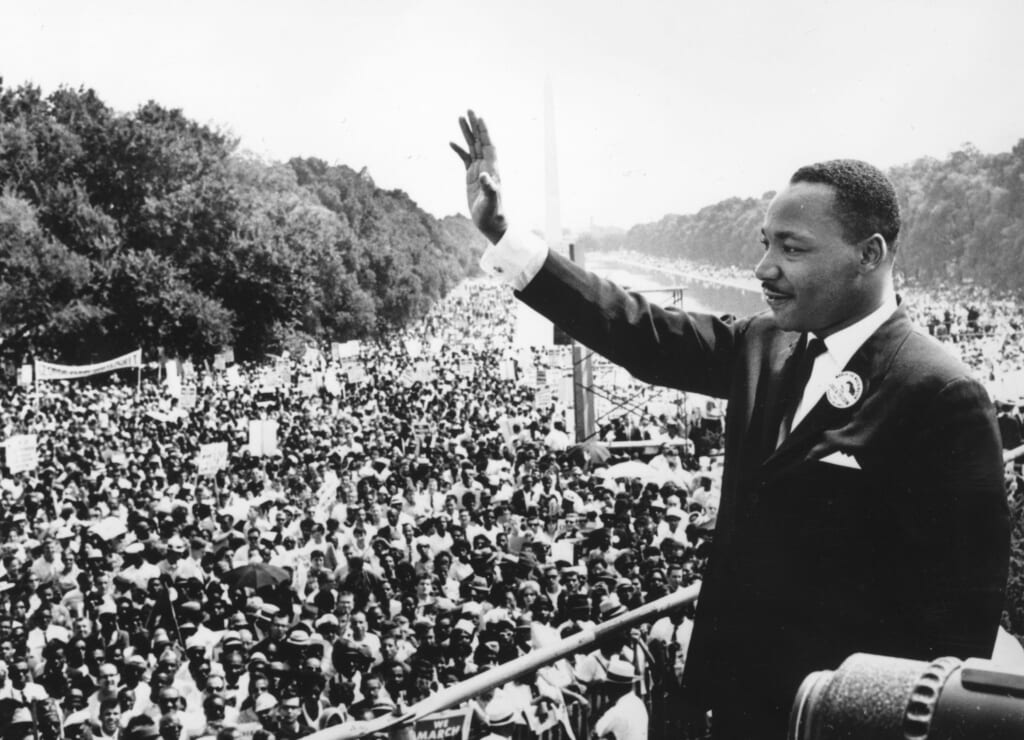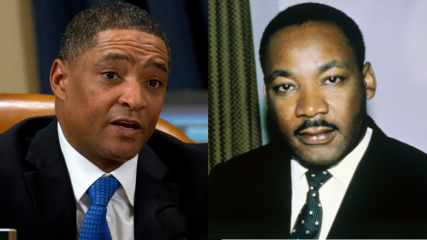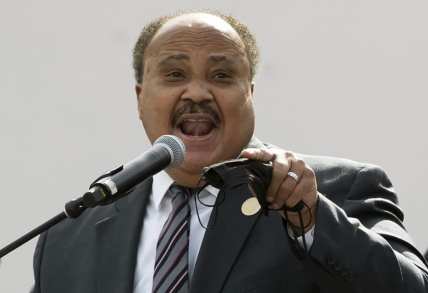The bumpy road to Dr. Martin Luther King Jr.’s birthday becoming a national holiday
EXCLUSIVE: Efforts to recognize the civil rights activist began just days after his assassination in Memphis -- but it didn't come without some resistance.
Dr. Martin Luther King Jr. stands as the most towering figure of the civil rights movement, so it’s no wonder why the famed minister’s birth is celebrated each year as a federal holiday. The road to Dr. King’s birthday gaining such recognition began just days after his untimely death and was nationally recognized in full 22 years ago.

Just four days after King’s assassination, U.S. Rep. John Conyers of Michigan introduced the first bill on the Congress floor proposing that the slain activist’s birthday be made into a federal holiday. The congressman at the time was one of the few Black voices in the House chamber and was a visible supporter of the civil rights movement dating back to the start of his congressional tenure.
Amid the discourse in moving the bill ahead into law, several states instituted their versions of MLK Day with Illinois making the day a paid holiday in 1973 after initially introducing a commemoration day in 1979. Connecticut also made MLK Day a paid holiday that year.
Congressman Conyers did not rest on his laurels and continued to introduce a similar bill annually, gaining some support from his peers in the form of co-sponsors.

In July of 1983, Rep. Katie Hall introduced what would be the final version of the bill which passed overwhelmingly in the House and moved to the Senate chamber, meeting resistance from Sen. Jesse Helms of North Carolina who shared a lengthly FBI report that framed King as a radical communist and anti-American. Sen. Daniel Patrick Moynihan stood tall against his Republican counterpart, throwing the report to the ground, and Sen. Ted Kennedy accused Helms of spreading inaccuracies.
The tenacity displayed by Conyers and several members of the Congressional Black Caucus brought the bill to the floor for open debate and the 15-year effort eventually paid off when President Ronald Reagan signed the bill into law on Nov. 2, 1983 and was first recognized as a federal holiday on Jan. 20, 1986.
Lonnie G. Bunch III, secretary of the Smithsonian Institution spoke with theGrio about the various roads taken by Conyers and the CBC to gain congressional passage for the holiday. Secretary Bunch, one of the leading historians of his era, looked back at the early days of the law’s journey and how it met resistance from all sides, not just conservative figureheads.
“It was such an incredible process, and it began just a handful of days after Dr. King’s assassination,” Bunch began. “There was a public outcry among many of how to remember this great historic figure and it met resistance from Sen. Helms and Sen. John Porter East.”

Bunch continued, “It took another 14 years from the official start of the holiday to be recognized by the entire nation, which illustrates how central race is in this country, even today, and how divided the nation was even in honor of someone who wanted to make America better.”
Bunch made sure to mention that King was initially met with skepticism among Black Americans in the 1950s because of his boldness and push for voting equality that often seemed to be an uphill battle.
“It’s amazing that toward the end of his life, many of the rough edges around King were made smooth,” Bunch explains. “He even began to become more radical, especially on the front of economic equality but he still retained this reverence from all sides. But I like to think of King as a radical American.”
Bunch suggests that ways to honor Dr. King would be to study his life’s work and use the proven methods of galvanizing others for the greater good, then apply it to the modern way of getting things in motion.
“King’s legacy isn’t just what happened in 1968, it’s about today and tomorrow. Martin Luther King dreamed of an America that was yet to be, and the notion that we still need to dream about the America that is yet to be is how we best maintain his legacy forever,” Bunch concluded.
To learn more about the life and legacy of Dr. Martin Luther King Jr., click here.
Have you subscribed to theGrio podcasts “Dear Culture” or “Acting Up?” Download our newest episodes now!
TheGrio is now on Apple TV, Amazon Fire and Roku. Download theGrio.com today!


